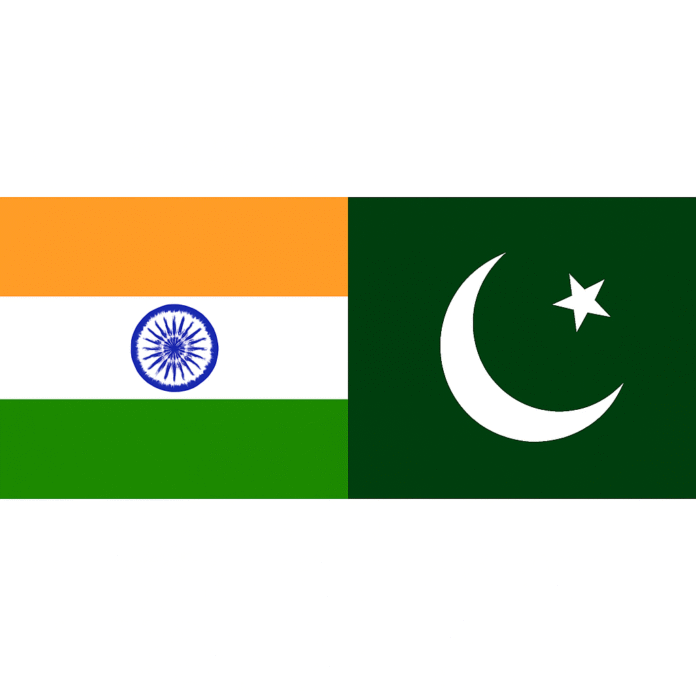Should India Play with Pakistan After Pahalgam Attack? What Do You Think?
Introduction
The question of whether India should play cricket with Pakistan resurfaces each time political tensions escalate or when acts of terrorism shake national sentiment. The recent Pahalgam terror attack, which claimed the lives of several brave soldiers and injured many others, has once again brought this debate into the spotlight. Amidst nationwide outrage and mourning, voices are growing louder demanding that India cancel all cricketing ties with Pakistan.https://www.dream11.com/
As the cricketing world eagerly anticipates the next India vs Pakistan clash — a contest known for its intense rivalry, massive viewership, and emotional weight — a deeper question emerges: Is it morally, politically, or strategically right to go ahead with such a match after an attack that has once again tested the nation’s resilience?https://www.cricbuzz.com/
Let’s explore the different dimensions of this issue — from politics and public sentiment to sportsmanship and international diplomacy — to better understand the complexities involved.
The Pahalgam Attack: A Nation in Mourning
On a fateful evening in July 2025, terrorists ambushed a convoy carrying Indian Army personnel in Pahalgam, a picturesque town in South Kashmir. The sudden and brutal attack led to the loss of 9 soldiers and left over a dozen injured. Preliminary investigations pointed to the involvement of Pakistan-based terror groups — a claim that, while not new, still ignites public fury every time such incidents occur.
The attack has not only evoked national grief but also reopened old wounds related to Pakistan’s support for cross-border terrorism. The timing couldn’t be more sensitive, as the Asia Cup and ICC World Cup fixtures between India and Pakistan are on the horizon.
A Long History of Cricket & Conflic
India and Pakistan share one of the most storied rivalries in cricket, but it’s a rivalry that has often been overshadowed by geopolitical tensions. Here’s a brief look at the intersection of politics and cricket between the two nations:
- 1999 Kargil War – Despite the war, India toured Pakistan in 2004 for a full cricket series.
- 2008 Mumbai Attacks – Cricketing ties were completely suspended after this terror attack. Bilateral series have been avoided since.
- 2016 Pathankot Attack – Once again, cricket diplomacy was questioned, and India refused any bilateral engagement.
- 2019 Pulwama Attack – There were calls for boycotting the India vs Pakistan match in the 2019 World Cup.
Time and again, cricket has become a platform where emotions run high, and fans expect their nation to stand up not just with bat and ball — but with principle.
Arguments Against Playing Pakistan
1. National Security & Moral Stand
Many believe that playing cricket with Pakistan sends a conflicting message. On one hand, India condemns terrorism and mourns its martyrs, but on the other, it participates in sporting events with a country allegedly sheltering terrorists.
Retired army officials, political leaders, and nationalist voices argue that sports should not be isolated from political realities, especially when the cost is bloodshed and national sorrow.
2. Undermining the Sacrifices of Soldiers
Cricket matches with Pakistan are not mere sports; they are high-voltage events that attract global media attention and revenue. Critics argue that participating in such matches normalizes relations, ignores the pain of martyrs’ families, and undermines the sacrifices made by Indian soldiers.
3. Public Sentiment & Boycott Calls
After the Pahalgam attack, hashtags like #BoycottPakistanMatch, #NoCricketWithTerror, and #StandWithOurSoldiers started trending. Public sentiment is a powerful force, and governments are often compelled to act in accordance with the mood of the nation.
Arguments in Favor of Playing Pakistan
1. Cricket is Not Diplomacy
Sports administrators and former cricketers argue that cricket is not diplomacy, and the ICC (International Cricket Council) tournaments are not the same as bilateral ties. India is not hosting or inviting Pakistan for a friendly match — these are neutral-ground, multilateral events governed by pre-determined fixtures.
2. Platform to Assert Dominance
For some, beating Pakistan on the cricket field is a symbolic act of dominance. It allows India to assert its supremacy not just in terms of skill but also morale. Walking away from matches may be seen as giving Pakistan an easy win — both symbolically and statistically.
3. Avoiding Penalties & Legal Issues
Pulling out of ICC events or refusing to play scheduled matches can lead to financial penalties, tournament disruptions, and even ranking losses. This could isolate India in the global cricketing community and reduce its leverage.
Cricket Diplomacy vs National Sentimen
Historically, cricket has been used as a tool of diplomacy — famously during the “Cricket for Peace” tours. But such approaches have often failed to produce lasting peace or behavioral changes in geopolitical strategy.
The key issue today is whether cricket diplomacy can survive the rising tide of nationalism and public outrage. Given how deeply cricket is loved in India, matches against Pakistan carry emotional, political, and symbolic significance that far exceeds that of any other sporting rivalry.
Voices from Both Sides
In Favor of Boycott:
- Harbhajan Singh, former cricketer: “You can’t shake hands with the same people who are stabbing you in the back.”
- Major Gaurav Arya (Retd.): “Cricket with Pakistan is blood money. It must stop.”
- Families of martyrs: Many have openly appealed to the government to cancel matches as a mark of respect.
Opposing Boycott:
- Sunil Gavaskar, legend: “Let’s beat them on the field, that’s the best answer.”
- Kapil Dev, former World Cup-winning captain: “Cricket is a sport. Let it be played.”
- BCCI Officials: “We cannot violate ICC rules, unless the government instructs otherwise.”
IN Public Sentiment (Majority View):
- Emotional & Patriotic Reaction: Many Indians feel that playing Pakistan after a terror attack disrespects the sacrifice of soldiers and sends the wrong message.
- BoycottPakistan Trends: Social media platforms have seen trends like #NoCricketWithPakistan, #StandWithSoldiers, and #BoycottIndVsPak gain traction.
- Martyrs’ Families & Army Veterans: Several families of slain soldiers and ex-servicemen have strongly opposed any cricketing ties with Pakistan.
Voices Supporting a Ban:
- Public Figures: Some politicians, defense experts, and celebrities have called for complete disengagement with Pakistan in all forms — including sports.
- Citizens: A significant portion of Indian citizens believe cricket is not “just a game” when national security and human lives are involved.
Opposing View (Minority but Notable):
- Keep Sports & Politics Separate: A section of the population — including former cricketers and neutral voices — argue that ICC tournaments are not bilateral and shouldn’t be politicized.
- Beat Them on the Field: Some Indians believe the best way to respond is by defeating Pakistan in the match itself, sending a symbolic message of strength.
What Does the Government Say?
The Government of India has maintained that it will follow the policy of “no bilateral cricket with Pakistan”, but in ICC tournaments, it abides by the tournament guidelines unless the Ministry of External Affairs (MEA) advises otherwise.
As of now, there is no official directive to cancel matches in upcoming ICC events. However, behind-the-scenes discussions between BCCI, MEA, and the National Security Council are likely ongoing.
The ICC’s Role & Constraints
The International Cricket Council (ICC) plays a limited role when it comes to political sensitivities. It only governs the cricketing regulations and logistics. Political standoffs are outside its purview, which means unless a country officially pulls out, the match must go on.
India could forfeit matches, but that might mean giving Pakistan 2 free points in league stages — something that could impact the tournament outcome.
The Way Forward
Given the emotions running high after the Pahalgam attack, here are some potential paths forward:
1. Let Government Decide
Cricket boards should defer to the government, treating this issue as one of national interest, not sports entertainment.
2. Symbolic Protest
India could wear black armbands, dedicate the match to the Pahalgam martyrs, or use the platform to make a strong political statement without withdrawing.
3. Dialogue & Conditional Participation
India could demand Pakistan take visible steps against terror groups or face isolation in global sports.
4. Complete Boycott
If national sentiment demands it, and if the government supports it, India could take the bold stance of pulling out — with the support of allies like Australia, UK, and others — to isolate Pakistan on global platforms.



